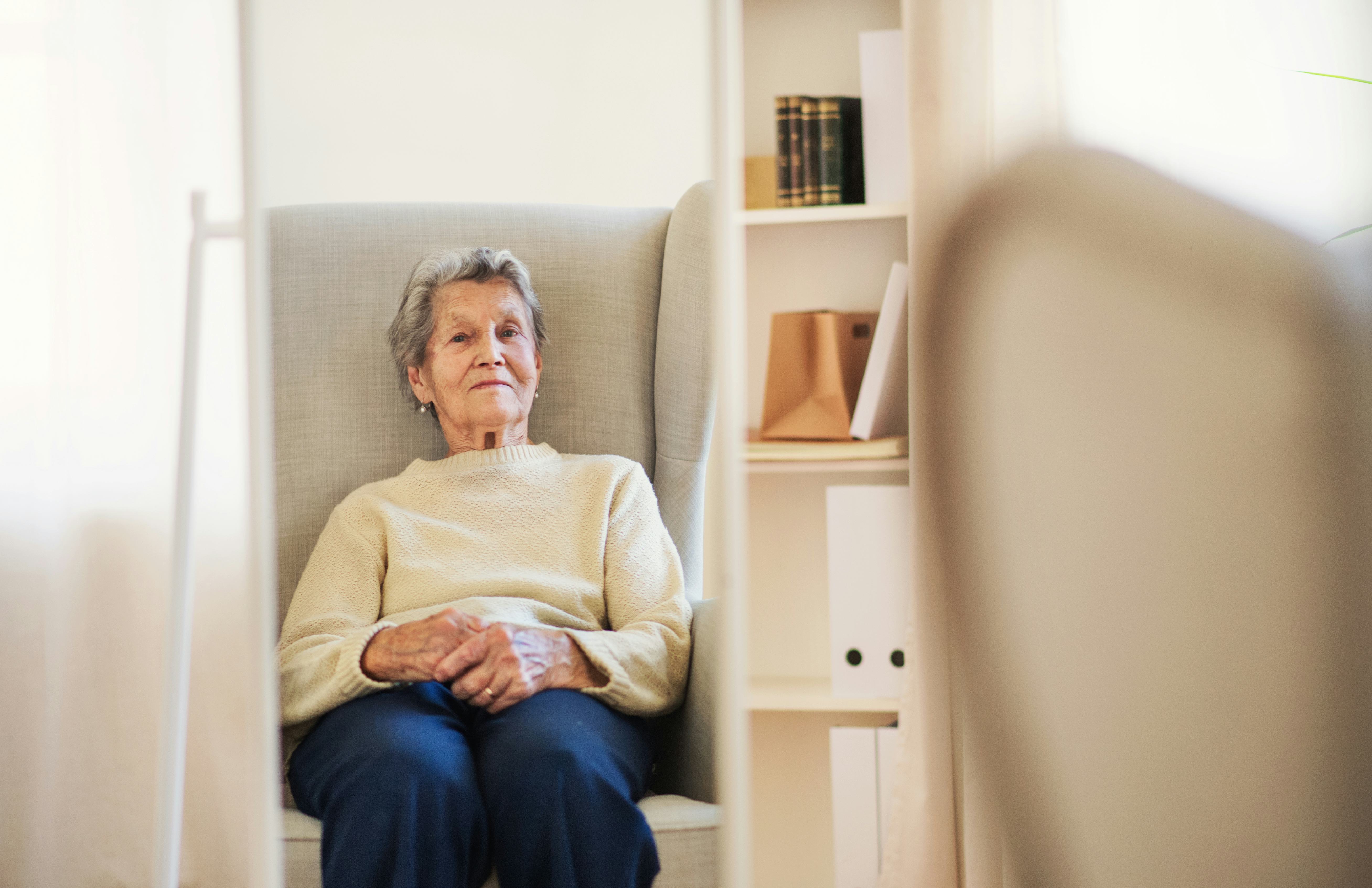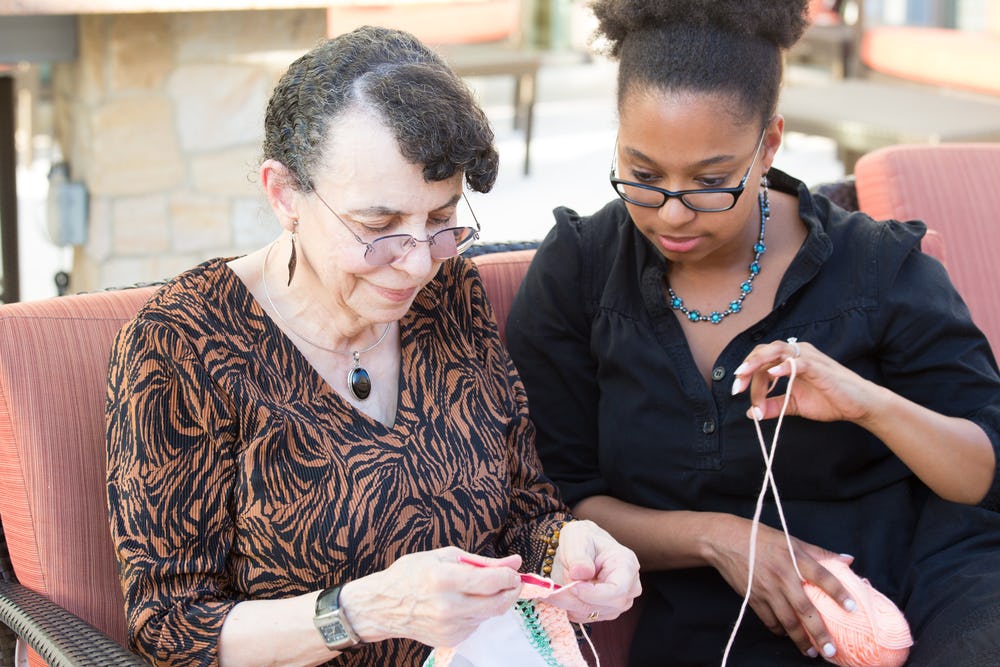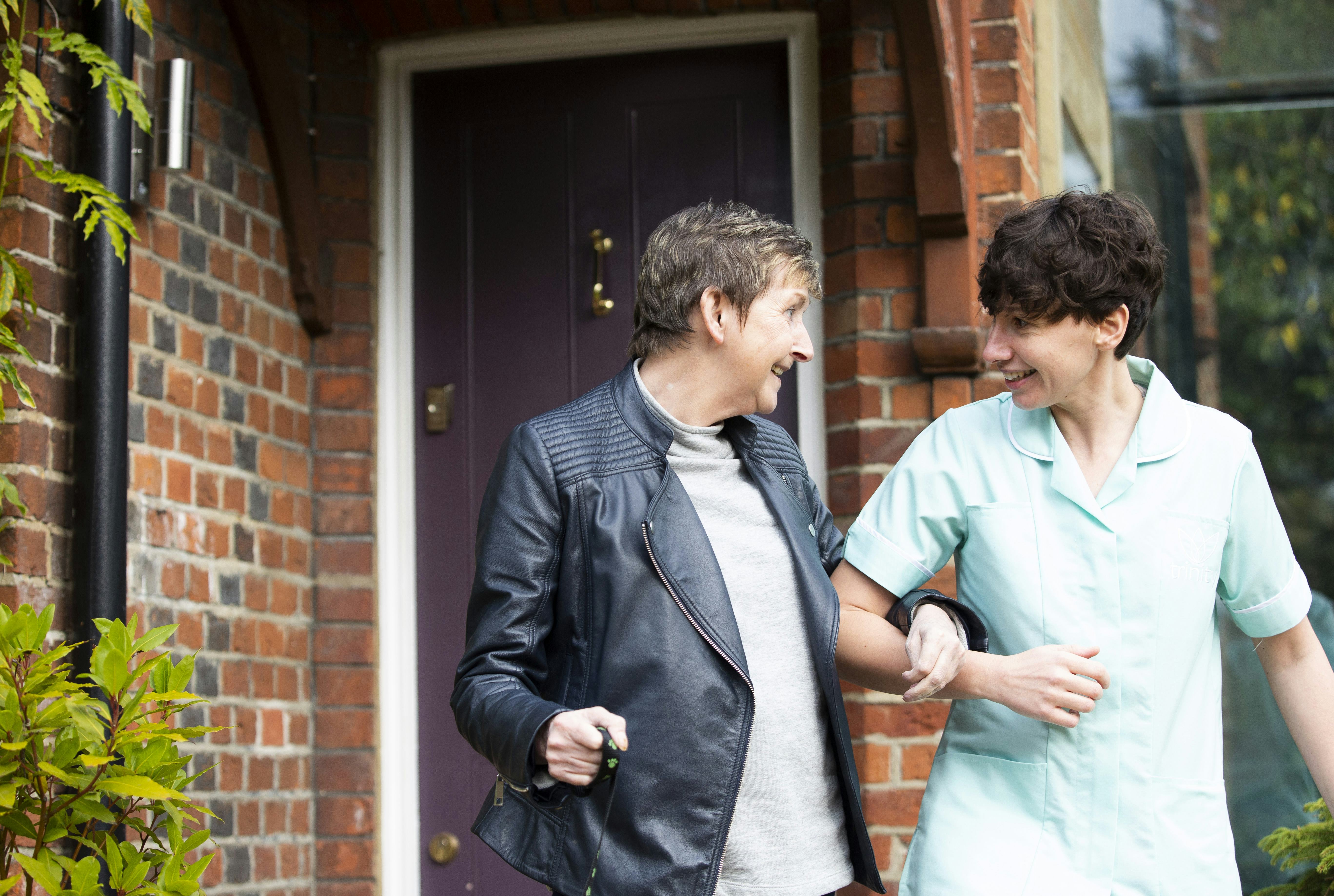Loneliness amongst the elderly is a growing problem in the UK. As people no longer tend to live close to their families and living alone is becoming more common among elders, it’s easy to see why loneliness amongst seniors has become so widespread.
According to the Office for National Statistics 3.3 million people over the age of 65 live alone, and Age UK report that 1.4 million older people in the UK are often lonely. With statistics like this, it’s important that we look out for our elderly loved ones.
What is loneliness?
Loneliness refers to a sense of imposed solitude and lack of connection with others. As humans, we are social beings, and feeling lonely is a natural emotion if our need to connect with others isn’t met.
Loneliness and social isolation are terms often used interchangeably but they do have slightly different meanings:
Loneliness is a subjective feeling about the gap between a person’s desired levels of social contact with others and their actual level of social contact. It refers to the perceived quality of the person’s relationships and whether they feel that they have enough interaction with others in order to be content. Feelings of loneliness can take a long time to overcome.
Social isolation is an objective measure of the number and level of contact someone has with other people. It is about the quantity and not the quality of relationships. When people feel socially isolated, it can be overcome relatively quickly by increasing the number of people they are in contact with.

Causes of loneliness?
There can be many reasons why someone feels lonely. However, loneliness amongst elderly people is usually caused by one or more of these factors:
Living far away from friends and family – moving to a new location, living rurally and a lack of transportation or loss of ability to drive can lead to social isolation and loneliness.
Loss of loved ones – bereavement from the loss of friends, family members or a partner can lead to profound loneliness. If a spouse passes away, the surviving partner may find it difficult to adapt to living alone and will naturally miss the connection they once had with these intimate relationships.
Limited mobility and hearing loss – declining mobility can make it more difficult to get out and about. Ailments and health conditions that restrict mobility can make socialising difficult. Hearing loss can make it challenging to engage with others, making it harder to hold a conversation with friends, or even pop into a shop. Over time this can impact a person’s confidence and the stress of not being able to communicate with others can cause people to withdraw and spend more time alone.
Becoming a carer – it is common in elderly couples that one person will have more health challenges than the other. In these circumstances, the healthier, more mobile, partner often becomes the caregiver. Caregiving is hard work at any age but for the elderly, it often increases social isolation and exhaustion leading to loneliness.
Technology barriers – whilst technology can help us stay connected with loved ones, not everyone finds using a computer or mobile phone easy. This means elderly people can miss out on the connection that technology offers.
Cost of living – financial constraints can contribute to isolation and feeling lonely. Changes in circumstances, such as the rise in the cost of living, may mean elders can’t afford to travel or meet with friends as often as they are used to.
Retirement – a lot of people associate their workplace with a sense of purpose and community. Losing touch with work colleagues and friends can remove a significant amount of social interaction from daily routines, increasing the amount of time spent at home.
Signs of loneliness
Signs of loneliness in older people are not always obvious and may differ from person to person. Sometimes the individual may not even recognise it themselves. However, some common themes underpin loneliness so look out for these signs in your elderly loved one:
Restless sleep
If your loved one is having recurring incidents of poor sleep, talk to them about how they are spending their day and how they feel. Research has found that the lonelier a person feels, the more fragmented their sleep becomes.
Increased shopping
It’s been found that lonely people increase their spending habits and shopping trips. This is usually to compensate for a lack of social connections, feeling an emotional loss or because they are looking for something to do. Sadly, it’s common for seniors to feel loss and loneliness and search for happiness and connection with shopping.
Change in attitude and communication style
It can be challenging for older adults to communicate their needs and they can easily succumb to routines and habits that keep them functioning but not particularly happy. Changes in their attitude, demeanour, and communication style can be typical signs to look out for in an older adult that has become socially isolated.
They may be aggressive or hostile toward their caregivers and loved ones. They may focus on one-sided discussions that are very negative or not audience-appropriate. When a person has gone a long time without talking to someone else, their behaviour may seem hostile and can accidentally repel or offend people.
Lack of appetite
A reduction in appetite is normal as we age. However, if you notice your elderly loved one is eating even less than normal, it could be a sign that they are experiencing loneliness or depression.
Problems completing ordinary tasks
A common sign of loneliness and depression in older people is failing to complete normal daily tasks such as taking out the rubbish, brushing one’s teeth or checking the mail. Your loved one may be experiencing physical health problems or facing emotional issues like loneliness. It is always a troubling sign when ordinary tasks seem impossible and signals a problem in their well-being.
Change in frequency of phone calls
Whether phone calls from your loved one are becoming more often or less, a change in the frequency of calls can be a sign of social isolation. The need to reach out and speak with you more often may be obvious, but a decrease in communication can actually signal social isolation and loneliness also and may be a sign of depression.
How to help an elderly person who is lonely
If you recognise some of these loneliness signs in your elderly loved one, then use some of the suggestions below to help them engage with others more, increase their activity levels and lift their mood:
Take time to talk
Simply taking the time to talk with your loved one, focusing on listening to them and letting them express their feelings and concerns, is a great remedy for loneliness. Try to visit them more regularly to share a cup of tea and chat or prepare and eat a meal together. If you live far from your elderly loved one, call them regularly, and if possible, engage them in video calls, which can really boost an older person’s morale, especially if they live alone.
Engage in local social support groups
Because loneliness amongst elders is now such a common problem, there are many support groups and social community events geared towards keeping elderly people engaged in social activities. You can find out what social groups for older people are available in your area on the Age UK website.
Get a pet
A pet can be a great source of comfort, joy, and companionship for people of all ages but especially for the elderly. If your loved one likes animals consider getting them a pet. Depending on their preferences and mobility a cat or dog could be a great antidote to their loneliness. Research has shown that interacting with animals can decrease levels of cortisol, lower blood pressure, reduce loneliness, increase feelings of social support, and boost one’s mood.
Consider home care services
If some of the solutions offered above are not suitable for your or your loved one’s circumstances, then consider home care services such as companionship care. At-home care and support is a great way to foster an older adult’s independence and autonomy while supporting their practical and emotional needs. Companionship care is a type of home care service, delivered by regular visits from a care professional who will spend time with your loved one chatting, sharing meals, playing games, or taking trips out to the local community.
Does your loved one need companion care?
If you or your loved one is living alone and struggling with loneliness, companion care is the perfect solution. At Trinity Homecare, we have been providing the highest quality home care throughout England for over 25 years.
We are very proud to have been awarded the highest rating by the Care Quality Commission for our ‘Outstanding’ services. This puts us in the top 3% of home care providers and means you can rest assured that you are receiving the best home care for your loved one.
Get in touch with us today to find out how we can help. We offer a free no-obligation enquiry service, including a free at-home assessment so we can completely understand your needs and preferences. Call our friendly team today on 01908 183 4648 , available from 8.30 am until 5.30 pm, 7 days a week. Alternatively, fill in our online enquiry form.










